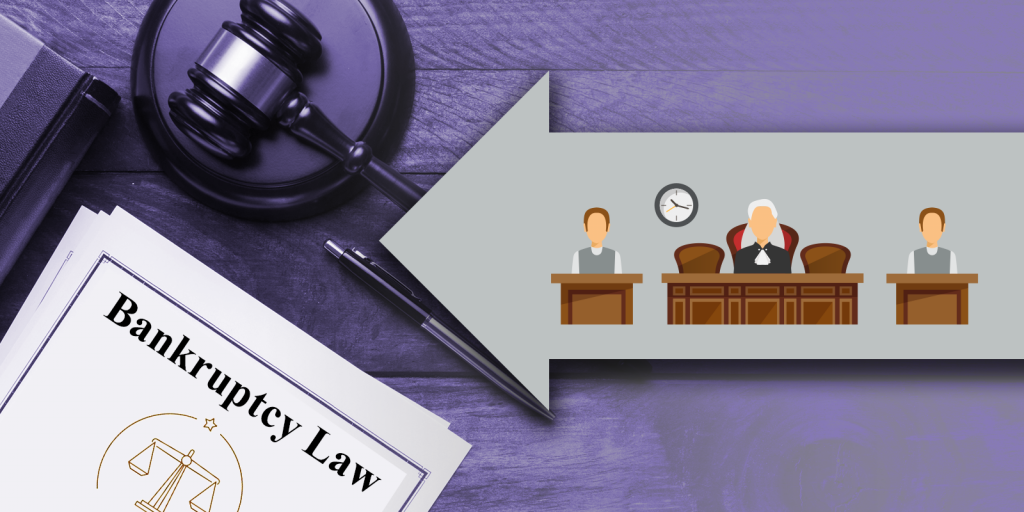Overview
The Arbitration Act, 1996 and the Insolvency and Bankruptcy Code, 2016 upon its inception have provided multifarious options to aggrieved parties; the common ground with these two enactments is that it ensures a time bound process. The article essentially deals with, limitation act vis a vis the impact of Arbitration Act on the proceedings initiated under IBC. Finally, the article puts forth that arbitrations proceedings do not essentially hit IBC proceedings but the under the IBC, the time taken in arbitration proceedings should be essentially excluded.

Track your NCLT / NCLAT cases or orders in your apple iOS / Google Android smartphones. Available for free trial period of 15 days.
Indian Limitation Act, 1963 (the Limitation Act) constitutes “general law” for Time Periods and its computation. Section 29(2) of the said Act contains the fundamental rule that provisions of Limitation Act would apply for computation of time period prescribed by any special law only to the extent it is not expressly excluded.On 11.10.2018, a division bench of the Hon’ble Supreme Court of India comprising of Justice R.F. Nariman and Justice Navin Sinha in the matter of B.K. Educational Services Private Limited v Parag Gupta And Associates, Civil Appeal No. 23988 of 2017 have held that the Limitation Act, 1963 will apply to applications that are made under s. 7 and s. 9 of the Insolvency and Bankruptcy Code, 2016 (“IBC”) on and from the commencement of IBC on 01.12.2016. The Supreme Court has through this judgment clarified that IBC proceedings cannot be initiated based on time barred claim.
S. 238A, IBC which was introduced vide amendment dated 06.06.2018 reads as follows:
“238-A. Limitation: The provisions of the Limitation Act, 1963 (36 of 1963) shall, as far as may be, apply to proceedings or appeals before the Adjudicating Authority, the National Company Law Appellate Tribunal, the Debt Recovery Appellate Tribunal, as the case may be.”
Since the Limitation Act is applicable to applications filed under Sections 7 and 9 of IBC from the inception of IBC, Article 137 of the Limitation Act gets attracted. Article 137 of the Limitation Act provides the period of limitation in case of “any other application for which no period of limitation is provided elsewhere” as three years from the time when the right to apply accrues. “The right to sue”, therefore, accrues when a default occurs.
If the default has occurred over three years prior to the date of filing of application under IBC, the application would be barred under Article 137 of the Limitation Act, except in those cases where, in the facts of the case, Section 5 of the Limitation Act may be applied to condone the delay in filing such application.
The National Company Law Tribunal, Principal Bench in the case of M/s Reliance Commercial Finance Ltd. vs. Ved Cellulose Ltd held that the pendency of arbitration proceeding is not a hinderance under section 7 of the Insolvency and Bankruptcy Code 2016 for initiating Corporate Insolvency Resolution Process.
In the case of Ram Dutt Ram. Kissen Dass vs. E.D. Sassoon & Co AIR 1929 PC 103 the Hon’ble court held that the proceedings before arbitrators who are tribunals, whom the parties have substituted for a court of law to be judges of the dispute between them are civil proceedings in a court for purposes of applicability of section 14 of the limitation Act.
In the cases of Fateh Chand vs Wasudeo; Union of India vs. Promode Kumar Agarwalla; State of UP vs. S. Prasad; Jay Jagdish Sugar vs. Vasantdada Patil Sahakari Sakhar Karkhana- the courts held that the arbitrators are a court and proceedings before them are civil proceedings, hence the time spent in arbitration proceeding is to be excluded from computation of limitation in a suit instituted subsequently in respect of the same subject matter provided the other requirements of section 14 are satisfied.
The Bombay High Court in the case of Purushottam Das vs Impex (India) Ltd has expressed the view that the time taken in arbitration proceeding can be excluded but that should be not under section 14, Limitation Act, but under section 37(5) of the Arbitration Act.
Conclusion
The article thus summarizes that arbitration proceedings will be considered equal to any civil proceedings and thus, any proceedings which is mitigated under the IBC, 2016 will have to ensure that time take for an arbitration to come to an end will have to be adjusted with limitation as provided under the Code of Insolvency.

